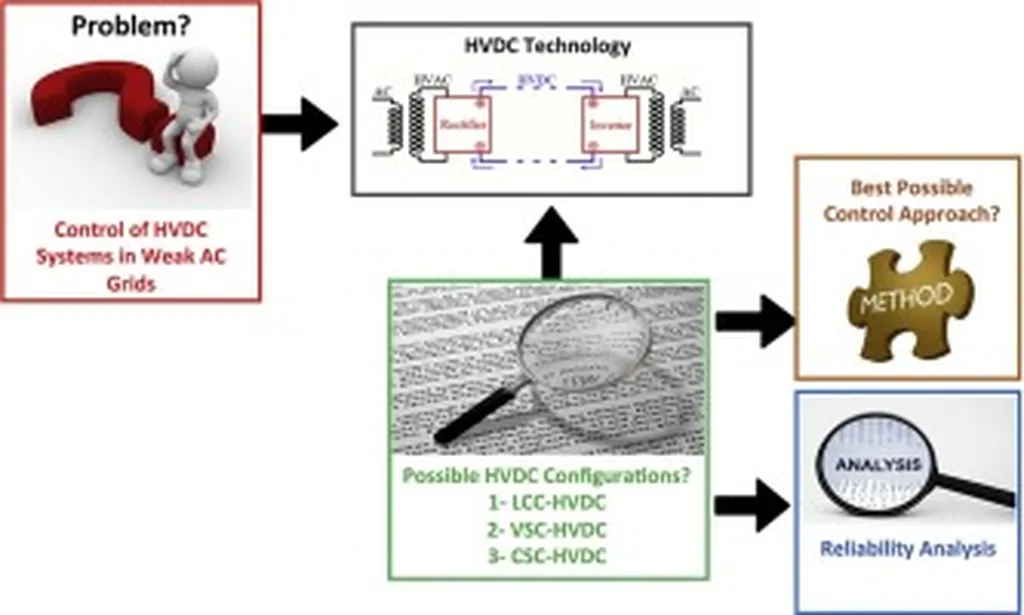In the ever-evolving landscape of energy transmission, researchers are constantly seeking ways to improve the performance of High-Voltage Direct Current (HVDC) systems, particularly in weak grid environments. A recent study published in the journal *Energies*, titled “Enhanced MMC-HVDC Power Control via Adaptive VSG-PBC in Weak Grid Environments,” offers a promising solution to a longstanding challenge. Led by Yan Xia from the School of Automation and Information Engineering at Sichuan University of Science & Engineering, the research introduces a novel control method that could significantly enhance the dynamic response and robustness of Modular Multilevel Converter-based HVDC (MMC-HVDC) systems.
The study addresses the issue of poor dynamic performance in MMC-HVDC systems when conventional control strategies are applied within weak power grids. Yan Xia and his team propose a innovative grid-connected power control method that integrates Virtual Synchronous Generators (VSGs) and Passivity-Based Control (PBC). This approach leverages the passivity characteristics of the MMC and the roles of virtual inertia and damping in VSG control to improve system performance.
“By implementing PBC in the current inner loop and incorporating VSG control in the power outer loop, we can significantly enhance the dynamic response and robustness of the MMC-HVDC system,” explains Yan Xia. The researchers further optimize performance by introducing adaptive virtual inertia and damping compensation mechanisms, utilizing sigmoid functions within the VSG framework.
The synergistic operation of PBC and adaptive VSGs has been validated through simulation experiments in MATLAB/Simulink, conducted under various conditions including power variations, grid voltage variations, and load changes. The results demonstrate the effectiveness and feasibility of the proposed method, paving the way for more stable and efficient energy transmission in weak grid environments.
This research holds significant implications for the energy sector, particularly in regions with weak grid infrastructures. By improving the dynamic performance of MMC-HVDC systems, the proposed control method can enhance the reliability and efficiency of energy transmission, ultimately benefiting both energy providers and consumers.
As the energy landscape continues to evolve, innovations like this one are crucial for shaping the future of power transmission. The integration of advanced control strategies, such as VSGs and PBC, could lead to more resilient and adaptable energy systems, capable of meeting the demands of a rapidly changing world.
In the words of Yan Xia, “This research represents a significant step forward in the development of advanced control strategies for MMC-HVDC systems. We believe that our findings will have a profound impact on the energy sector, particularly in regions with weak grid infrastructures.”
As the energy sector continues to grapple with the challenges of integrating renewable energy sources and maintaining grid stability, the findings of this study offer a promising solution. By enhancing the dynamic performance of MMC-HVDC systems, the proposed control method can contribute to a more reliable and efficient energy transmission infrastructure, ultimately benefiting both energy providers and consumers.
The research published in *Energies* highlights the importance of continued innovation in the field of power transmission. As the energy landscape continues to evolve, the integration of advanced control strategies, such as VSGs and PBC, could lead to more resilient and adaptable energy systems, capable of meeting the demands of a rapidly changing world.

